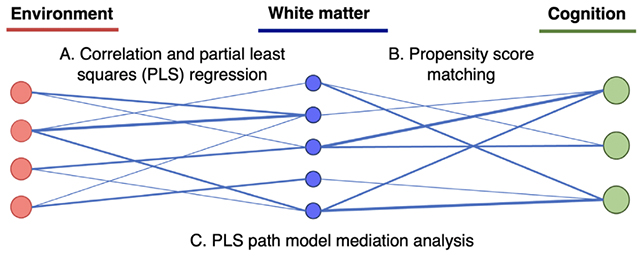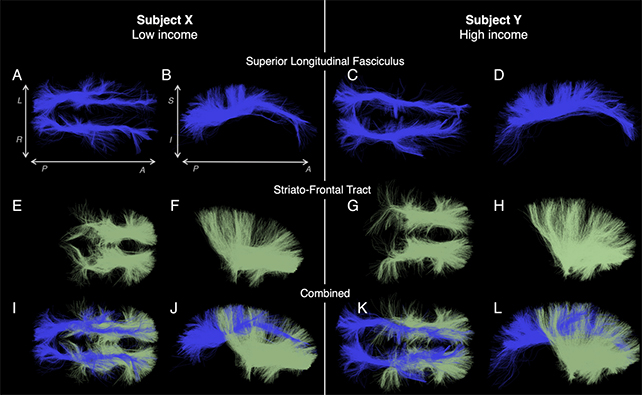Hardships in childhood could have lasting effects on the brain, new research shows, with adverse events such as family conflict and poverty potentially affecting cognitive function in kids for several years afterwards.
This study, led by a team from Brigham and Women's Hospital in Massachusetts, looked specifically at white matter: the deeper tissue in the brain, made up of communication fibers ferrying information between neurons.
"We found that a range of adversities is associated with lower levels of fractional anisotropy (FA), a measure of white matter microstructure, throughout the whole brain, and that this is associated with lower performance on mathematics and language tasks later on," write the researchers in their published paper.

The team analyzed white matter brain scans on 9,082 kids around the ages of 9 and 10. The young people and their parents were also asked retrospectively about a wide range of problems that can happen during childhood.
Those problems included mental health and addiction issues in parents, a lack of medical care, and low rankings for neighborhood safety. These factors were cross-referenced against white matter scans to find associations.
While the brain scans were captured just once – so the study can't prove cause and effect, or white matter changes over time – the young participants did undergo a mix of cognitive tests in the three years that followed.
Reduced white matter connectivity was linked to poorer cognitive performance, and although the differences weren't huge, they do suggest that the ripples of adverse life experiences in childhood may carry into adolescence.

Plenty of research has been carried out into how stressful experiences can leave permanent marks on the brain – from kids separated from their parents to soldiers returning from conflict – but white matter changes haven't been extensively studied.
"The aspects of white matter that show a relationship with our early life environment are much more pervasive throughout the brain than we'd thought," says neurologist Sofia Carozza, from Brigham and Women's Hospital.
"Instead of being just one or two tracts that are important for cognition, the whole brain is related to the adversities that someone might experience early in life."
There is some good news here. More positive impacts on kids, including support from the wider community, and parents who were present and involved, appeared to protect the brain's white matter from harm.
The researchers are keen to raise awareness about the damage that can be done as young bodies develop, which then has repercussions later in life – even if a happy and wholesome childhood doesn't come with any guarantees.
"We are all embedded in an environment, and features of that environment such as our relationships, home life, neighborhood, or material circumstances can shape how our brains and bodies grow, which in turn affects what we can do with them," says Carozza.
"We should work to make sure that more people can have those stable, healthy home lives that the brain expects, especially in childhood."
The research has been published in PNAS.
